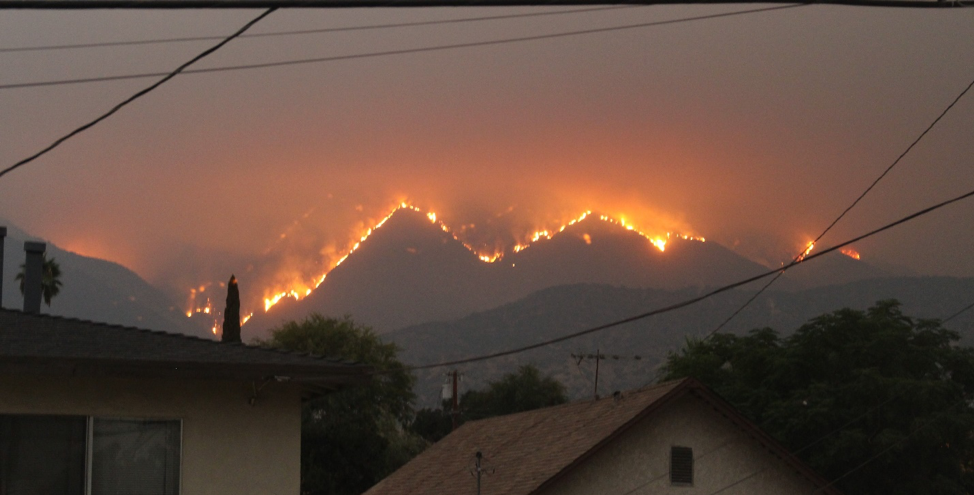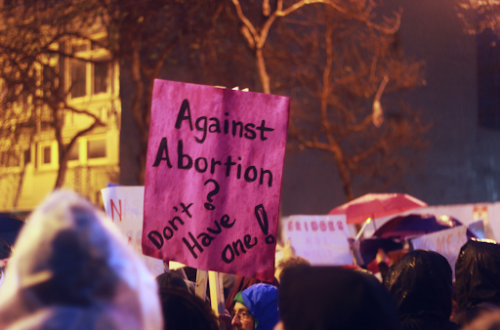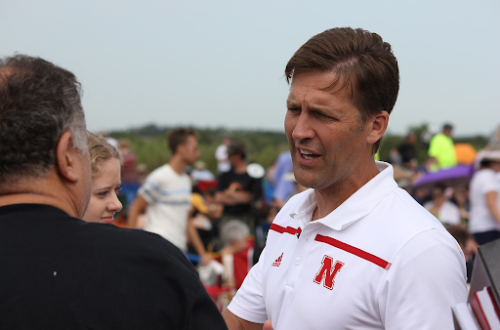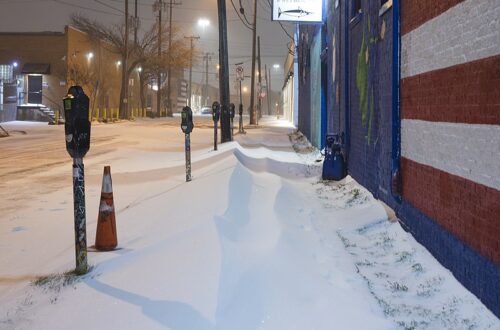Democrats are often portrayed as the party of science. That’s certainly the impression one gets reading mainstream coverage of the recent wildfires. “As Trump Again Rejects Science, Biden Calls Him a ‘Climate Arsonist,’” reads a characteristically even-handed headline at The New York Times.
Despite this carefully crafted image of Biden as a champion of science, he too gets climate change very wrong.
In his speech addressing the devastating wildfires on the west coast, Biden avoided the blatant Trumpian falsehoods that marred his opponent’s messaging on the issue. He did not say “It’ll start getting cooler, you just watch,” in response to concerns about the role climate change plays in intensifying wildfires.
Biden’s form of dishonesty was more nuanced and much harder to parse. Avoiding statements that could be directly fact-checked, Biden crafted a highly misleading narrative about climate change and its relationship to the recent fires.
Biden’s first major spin was dismissing Trump’s emphasis on improved forestry as a callous distraction. According to Biden, a focus on reforming forestry “blames the people whose homes and communities are burning” instead of focusing on the root of the problem, which is climate change. This framing is rejected by both Gov. Gavin Newsom, D-Calif., and scholarly research on environmental sustainability.
In a joint briefing with President Trump, Newsom admitted “we have not done justice on our forest management,” before lauding Trump’s “first of its type commitment” to “double our vegetation management and forest management.” Newsom also emphasized the need for more federal aid, stating “57% of the land in this state is federal forest land” while only “3% is California.”
While this division of responsibility appears to absolve California of blame for the recent fires, the truth is more complicated. According to an article published by the journal Nature Sustainability, it is often state and local regulations that prevent proper forest management despite the majority of forested land in California being owned by the federal government.
One essential form of forest management is prescribed burning, which is where a wildfire is intentionally set and guided to deplete dry tinder, limiting the spread of future fires. The hurdles preventing prescribed burns serve as a perfect microcosm for regulatory dysfunction in California forestry.
A years-long approval process culminates in a “couple-thousand-page document analyzing every single conceivable impact to the environment,” according to Jonathan Wood, an attorney at the Pacific Legal Foundation’s DC Center. Prescribed burn proposals can then be delayed indefinitely by litigation from residential interests, environmental advocacy groups, or even local governments via the Clean Air Act.
Every potential externality of a prescribed burn is analyzed, often for almost a decade, but the devastating consequences of doing nothing are only discussed when they turn the sky orange.
Over 20 million acres of California’s forests are in need of intervention, yet fewer than 20 thousand acres receive said intervention each year. Those “whose homes and communities are burning” should demand better of their local and state leaders rather than scapegoat the abstraction of climate change as Biden does.
This is not to say that climate change plays no role in exacerbating wildfires, but that a realistic analysis of the problem would focus less on reducing carbon emissions and more on improving mitigation measures such as prescribed burns. This leads into Biden’s second and much more mendacious claim that the intensity of natural disasters can be directly linked to the occupant of the white house.
Biden goes on to label Trump a “climate arsonist” and declares that under a second Trump term, we can expect more suburbs to be “burned in wildfires,” “flooded out,” and “blown away in superstorms.” The label “climate arsonist” is tendentious at best, but the reality of intensifying natural disasters is undeniable.
The contrast Biden then draws with his potential presidency is where he descends into pure fantasy. He asserts that “unless we take urgent action,” the damage from climate change “will soon be more catastrophic.”
What is this “urgent action” Biden refers to? It would take a truly revolutionary proposal to prevent climate change from intensifying. Biden offers no such proposal. For the following 6 minutes, he goes through a progressive wish list of climate-oriented reforms, including rejoining the Paris Climate Accord, adopting several aspects of the Green New Deal, and a strengthened reinstatement of Obama-era fuel efficiency standards.
Notably absent are any concrete climate mitigation measures.
The inconvenient truth about Biden’s proposals is that they would have a diminutive impact on global temperature increases and absolutely no impact on the intensity of natural disasters within our lifetimes. If America became carbon neutral today, (something Biden doesn’t even claim can be done before 2050), that would only offset the expected temperature increase by 0.14 degrees.
Biden promises to overturn the climate hourglass, but his proposals amount to removing a few grains of sand from the top. Climate change is an international, multi-century problem with no clear and present solutions. Until green energy and carbon-capture technologies improve substantially in their efficacy and cost, our most realistic way of managing climate change is via mitigation.
To control the wildfires raging in California, we need a streamlined process for prescribed burns along with other forestry reforms. To protect against the hurricanes currently ravaging the panhandle, we must reduce coastline development and ramp up flood control measures such as those in Miami.
Until our political class is able to compromise on these affordable and effective measures to reduce climate change’s impact on our country, we will be forced to choose between Trump’s maximalist denial and Biden’s fantastical conjecture.
Featured image: Bobcat fire threatens suburbs in Monrovia, California. Unmodified photo by Eddiem360 used under a Creative Commons License. (https://bit.ly/2FPsrzq)





